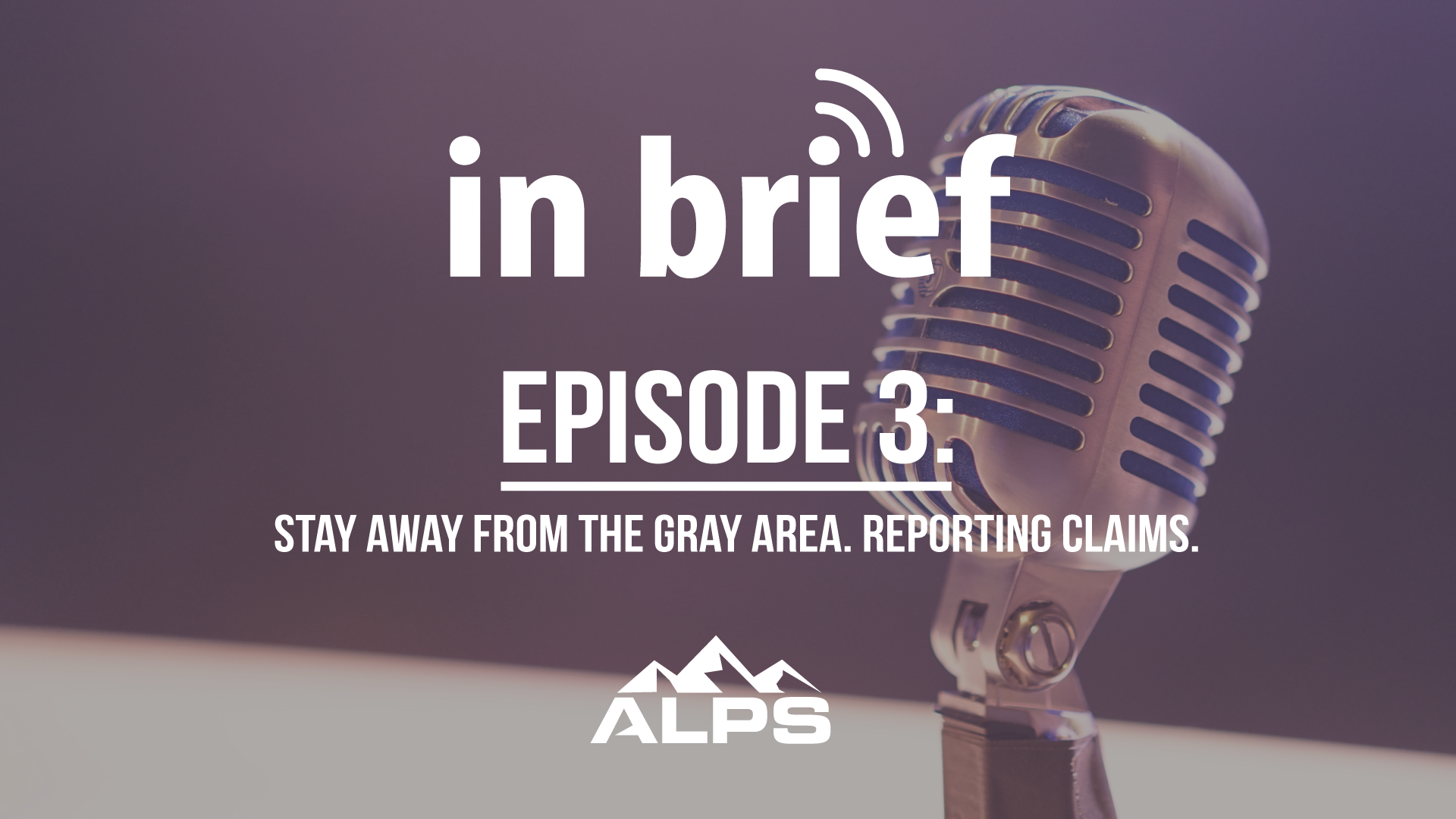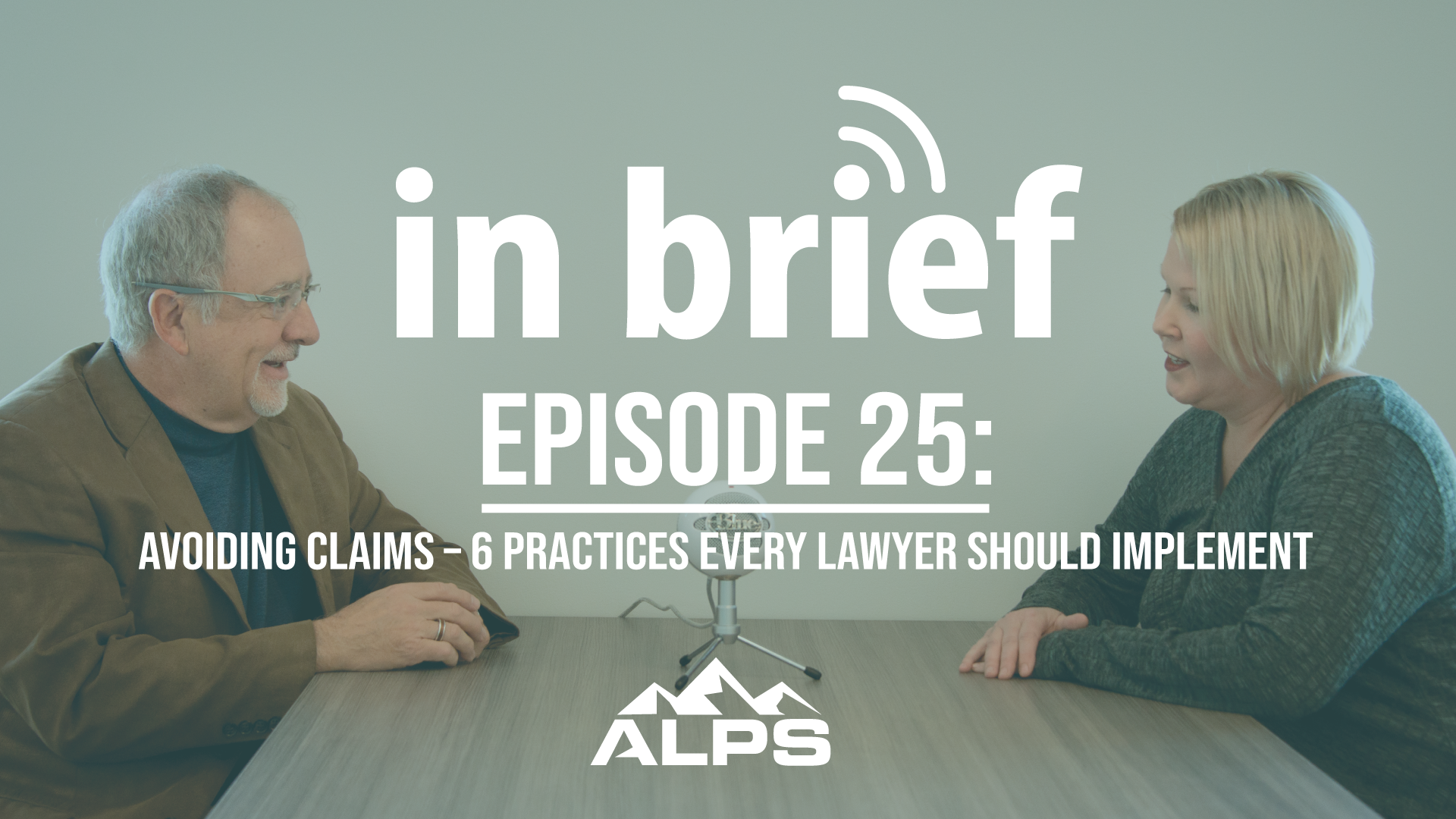11 min read
ALPS In Brief Podcast – Episode 25: Avoiding Claims – 6 Practices Every Lawyer Should Implement
In this episode of the ALPS in Brief podcast, ALPS claims attorney Kobi Gibbs sits down with ALPS Risk Manager Mark Bassingthwaighte to offer...
 Mark Bassingthwaighte, Risk Manager
Mark Bassingthwaighte, Risk Manager




